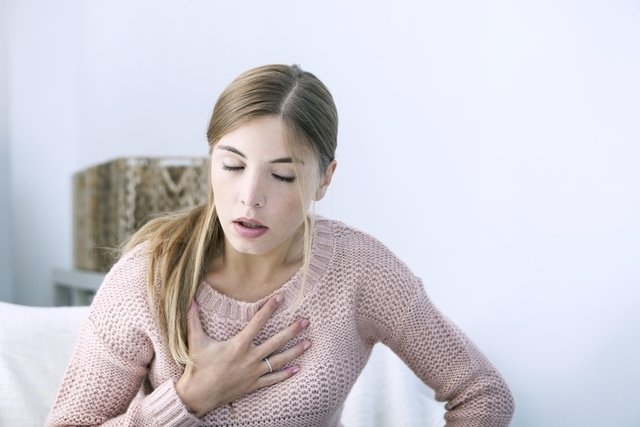A heart rate is the number of times the heart beats per minute. A normal heart rate is usually between 60 and 100 bpm (beats per minute) at rest.
A normal heart rate can vary with certain factors, like age, activity level or cardiac history.
Depending on your age, a normal resting heart rate is:
- Up to 2 years of age: 120 to 140 bpm
- Between 8 and 17 years: 80 to 100 bpm
- Sedentary adults: 70 to 80 bpm
- Active adults and older adults: 50 to 60 bpm
Heart rate is an important indicator of health status which doctors can refer to alongside other parameters.

How to measure heart rate
To measure your heart rate, place your index and middle fingers on the side of your neck and palpate until you feel a pulse. Count the beats for one minute. If your pulse is regular, then you can count the heart beasts for 15 seconds and then multiply by 4.
Another reliable way to measure heart rate is to use a small device called a pulse oximeter. It is able to read a heart rate within a few seconds. Many sports watches and smart watches also have this ability. You can purchases a pulse oximeter or a sports watch in health equipment stores or electronics stores.
Heart rate reference table
The following table outlines the normal resting heart rate for men:
This table outlines the normal resting heart rate for men:
If your heart rate is above the indicated values, you should consider exercising more frequently to improve your cardiac capacity. Physical activity can help the heart to pump the same amount of blood with less force, which will naturally decrease resting heart rate.
What can affect heart rate?
These are main factors that affect heart rates which are,
-
Above 100 bpm:
Increased heart rates are not always a concerning clinical finding. The heart can beat faster in normal, day-to-day situations like:
- With intense emotions
- During panic or anxiety attacks
- During sex
- With a fever
- During exercise
- When exerting force
- With medications
- With high blood pressure
- After ingesting high quantity of alcohol or caffeine
- With cardiac disease, like cardiac failure, valvular disease, atherosclerosis or hypertension
High blood pressure (above 140/90 mmHg) may stimulate a quicker heart rate and increase the risk for a heart attack. Symptoms of an imminent heart attack include chest pain, arm pain, the feeling of indigestion, dizziness and cold sweats. If you experience these symptoms, you should proceed immediately to the hospital or call an ambulance. Read more about the symptoms of a heart attack that you shouldn’t ignore.
If you notice a fast heart rate more than 3 times per day week, even when at rest without exertion, and none of the above situations apply, you should see a doctor for further assessment and treatment as necessary.
-
Below 60 bpm:
Heart rates under 60 bpm can occur due to normal aging or as a side effect of a cardiac medication. However, a low heart rate can also be a sign of a cardiac problem, like a heart block or sinus node dysfunction (especially if accompanied by symptoms like dizziness, fatigue or shortness of breath). If you notice a low heart rate, you should see your doctor for cardiac testing and treatment as necessary.

How to decrease heart rate
If your heart rate is high and you feel palpitations, you can try to normalize your heart right by:
- Stand and bend your knees slightly with your hands on your knees, then cough forcefully 5 times
- Inhale deeply and exhale through your mouth, as if you were blowing out a candle
- Count backward from 20 to soothe any nerves
Your heart rate should recover slightly with these techniques, however if you notice tachycardia (a fast heart rate) very frequently, you should see se a doctor to see if any specific factors are contributing to this increase. .
If your resting heart rate is low, you can try to increase your frequency of physical activity. Try to incorporate walks, runs, water aerobics or other activities into your routine.
Maximum heart rate when exercising
Your maximum heart rate (MHR) will vary depending on your age and your daily physical activity level. You can calculate your maximum heart rate with the following formula:
- MHR for men: 220 - age
- MHR for women: 226 - age
A young adult may notice a maximum heart rate of 90, while an athlete may have a maximum heart rate of 55, depending on their physical condition. It is important to remember that MHR varies from person to person, and depends on their physical status, and not their health history.
To lose weight and burn fat, you should maintain your heart rate at 60 to 75% of your MHR. This will vary according to your age and gender.
